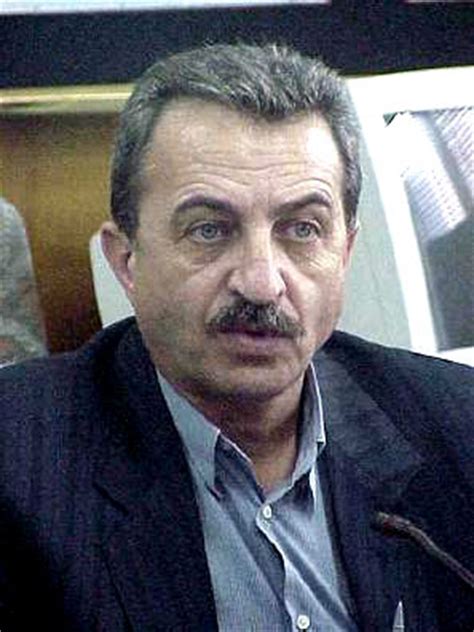A Quote by Sherrod Brown
I have studied the details, listened to Ohioans on all sides of this issue, and consulted with nuclear experts. This deal is not about trusting the Iranian regime, but instead working with our allies on comprehensive, verifiable restrictions to block Iran's pathways to a nuclear bomb without precipitating another war in the Middle East.
Related Quotes
Without a deal [with Iran], the international sanctions regime will unravel with little ability to reimpose them. With this deal, we have the possibility of peacefully resolving a major threat to regional and international security. Without a deal, we risk even more war in the Middle East and other countries in the region would feel compelled to pursue their own nuclear programs, threatening a nuclear arms race in the most volatile region in the world.
The Iranian issue I don't think has much to do with nuclear weapons frankly. Nobody is saying Iran should have nuclear weapons nor should anybody else. But the point in the Middle East, as distinct from North Korea, is that this is center of the world's energy resources. Originally the British and secondarily the French had dominated it, but after the Second World War, it's been a U.S. preserve. That's been an axiom of U.S. foreign policy, that it must control Middle East energy resources.
International inspectors are on the ground and Iran is being subjected to the most comprehensive, intrusive inspection regime ever negotiated to monitor a nuclear program. Inspectors will monitor Iran's key nuclear facilities 24 hours a day, 365 days a year. For decades to come, inspectors will have access to Iran's entire nuclear supply chain. In other words, if Iran tries to cheat - if they try to find build a bomb covertly, we will catch them.
the IAEA illegally insisted on politicizing the Iranian nation's nuclear case, but today, because of the resistance of the Iranian nation, the issue is back to the agency. And I officially announced that, in our opinion, the nuclear issue of Iran is now closed and has turned into an ordinary agency matter.
I have traveled many times outside Iran, and have discussed the issue [of the Iranian nuclear project]. I have been asked for my opinion and that of the Iranian Jewish community, and I have always emphasized that the Iranian people has the right to obtain nuclear technology and energy for peaceful purposes. The Iranian people must not give up this right under any circumstances - and indeed, it will not.
If Donald Trump dismantles the agreement [the "Iran nuclear deal"] won by President Barack Obama with President Hassan Rouhani and the Iranian government and people: If he dismantles that, and puts greater sanctions on Iran, then we are leading to another war; another war inspired by Israel, another war that will bring China into war, Russia into war, Europe into war. And the Western world, in this war, will be taken completely down, and a whole new world is on the horizon.
Iran's Supreme Court has issued a fatwa against the development of nuclear weapons. President [Hassan] Rouhani has indicated Iran will never develop nuclear weapons. I've made clear that we respect the right of the Iranian people to access peaceful nuclear energy in the context of Iran meeting its obligations.
Donald Trump has the ability to renegotiate the Iran nuclear deal as he says, but if he were to do so, this would be regarded in Tehran as an abrogation of the deal. This would allow the Iranian side of the deal to in effect withdraw because they could say that the United States has not held up its end of the bargain, and therefore we're going to restart our nuclear program.
The intelligence services would probably be in a better position to make an assessment of the advancement of the Iranian nuclear program than Podhoretz or Ledeen. They don't have access to any specific information. So for them to dismiss it has no great value because they have no authority whatsoever on this issue. For them to push forward with their efforts to get a war started between the U.S. and Iran, you certainly cannot say that Iran does not have a nuclear program. If you say that, then the justification for war has basically been eliminated.





























